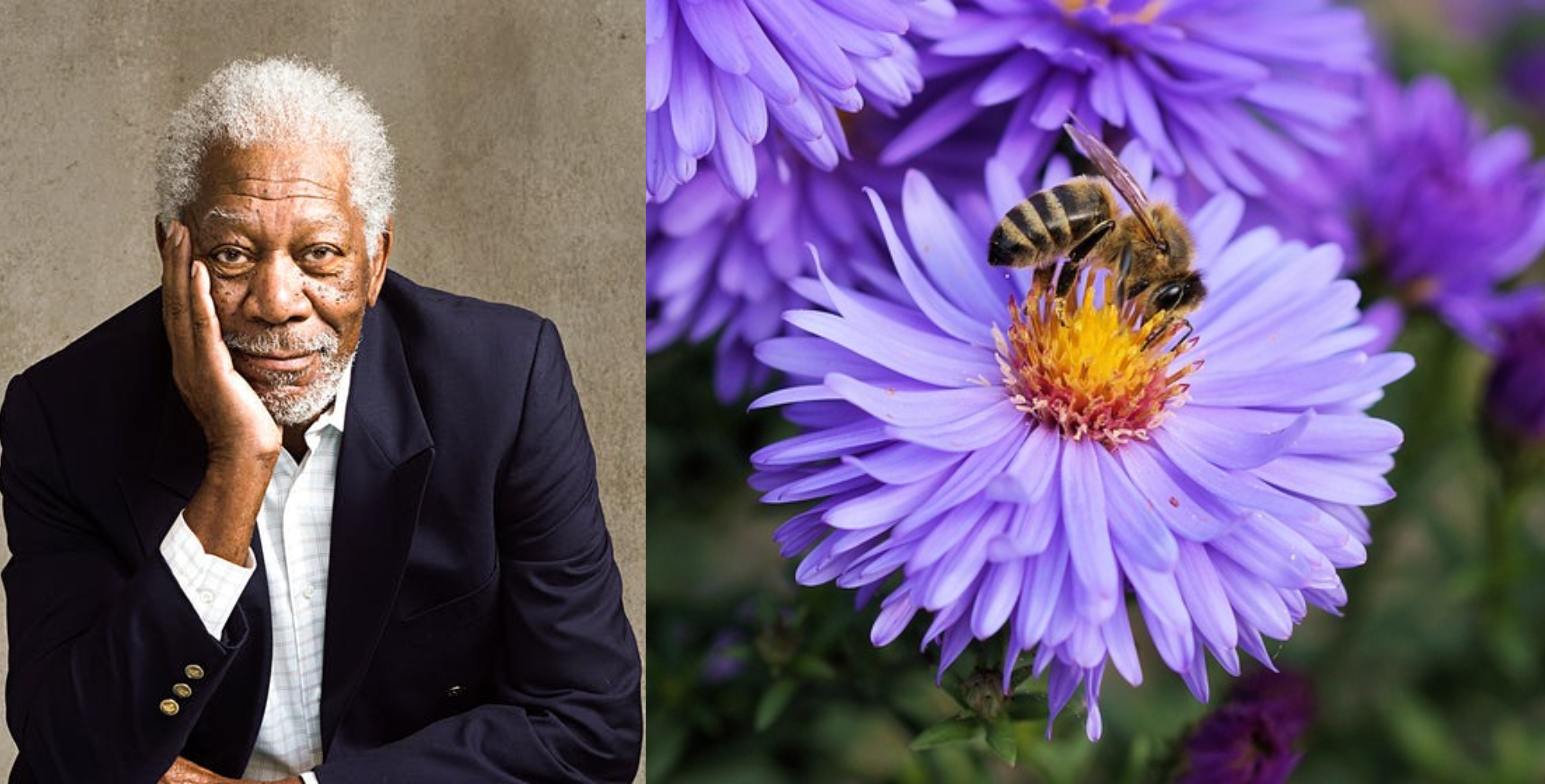Morgan Freeman’s newest role may prove to be his most important. The actor has turned his 124-acre Mississippi ranch into a sanctuary for wild bees, in an effort to help support population growth for the little pollinators. Freeman started beekeeping in 2014 with 26 hives of bees. His gardener also helps with the project by planting acres of bee-friendly plants including clover, lavender and magnolia trees.

Back in 2014, Freeman talked to host Jimmy Fallon about his new hobby during an appearance on “The Tonight Show.” Having taken up beekeeping just two weeks prior to the interview, the actor described how well he and his bees get along.
The actor told Fallon that he doesn’t even need to wear a protective beekeeper’s suit or veil when tending to his precious pollinators, suggesting that he has reached a level of skill and ease akin to his on-screen performances.
Take a look at the video from The Tonight Show Starring Jimmy Fallon
Freeman started keeping bees as a direct response to the mass bee die-offs that have been threatening the survival of wild bees for the past several years. The actor decided to make a difference by taking action, so he imported 26 hives full of bees from Arkansas. He started feeding them sugar water until they get to know their new environment.
He said he doesn’t wear the beekeeper’s hat and veil because the bees do not sting him, joking that the protective gear is “for people who can’t resonate” with the bees. When Fallon suggested Freeman had become “at one with the bees,” the actor couldn’t help but agree.
The actor also explained that he just feeds the bees, and does not want to disrupt the beehives or harvest the honey that they make. ‘There’s a concerted effort to bring bees back onto the planet.’ – he said. ‘We do not realize that they are the foundation, I think, of the growth of the planet, the vegetation…’
Bees’ natural habitats are in danger
Bees’ natural habitats are being threatened by the use of pesticides and man-made changes to the range of plant species found in the environment.
More than a decade ago, US beekeepers began finding their hives decimated by what became known as colony collapse disorder. Millions of bees mysteriously disappeared, leaving farms with fewer pollinators for crops.
Explanations for the phenomenon have included exposure to pesticides or antibiotics, habitat loss and bacterial infections.
Sources:

